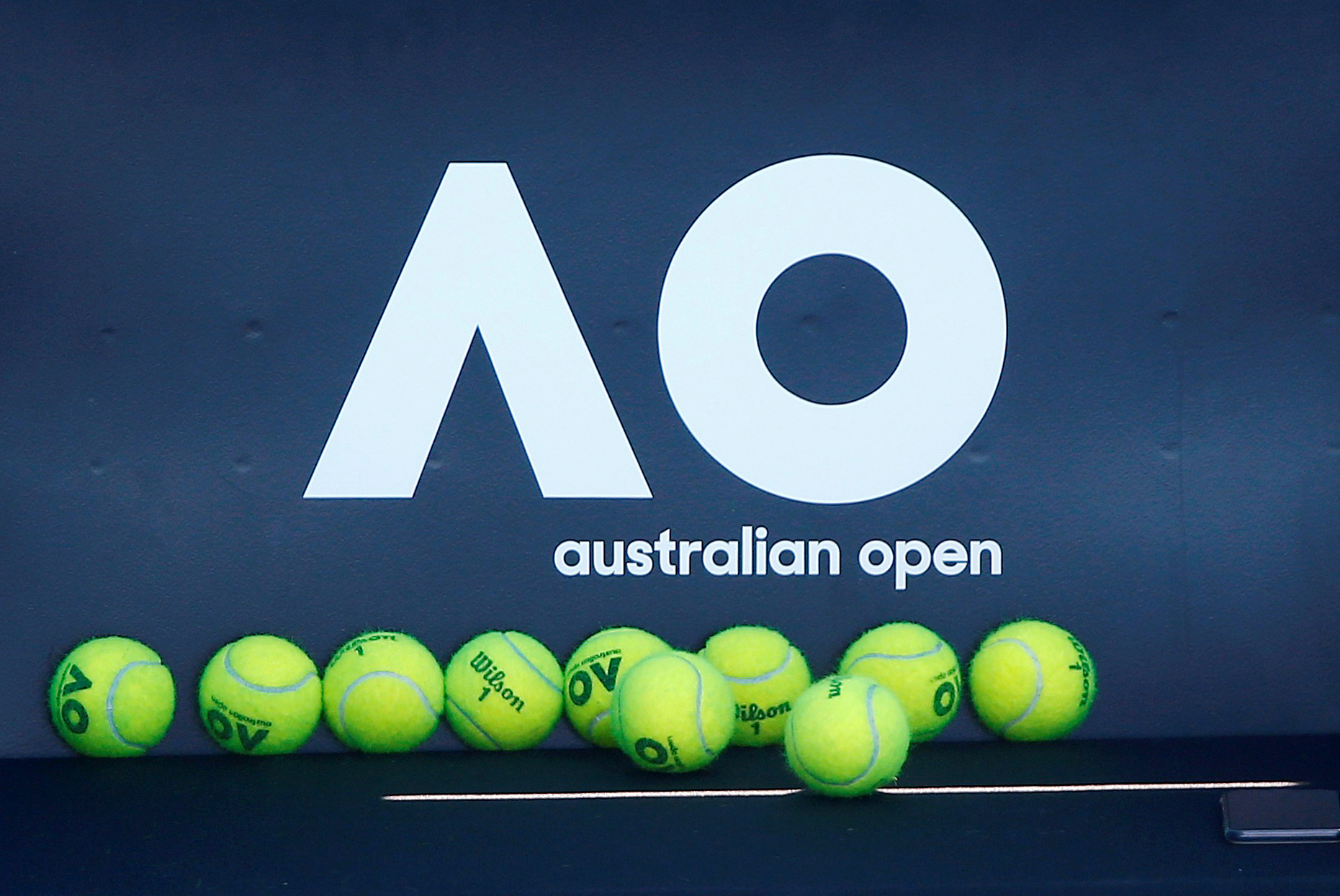Djokovic’s court defeat to shake up Australian Open draw

FILE PHOTO: Tennis – Australian Open – Melbourne, Australia, January 14, 2018. Tennis balls are pictured in front of the Australian Open logo before the tennis tournament. REUTERS/Thomas Peter
MELBOURNE – A court decision to uphold the cancellation of Novak Djokovic’s visa on Sunday has shaken up the Australian Open draw on the eve of the tournament, handing a boost to his rivals and adding intrigue to the race for the Grand Slam titles record.
The world number one had been favorite to win a 10th title at Melbourne Park and claim a 21st Grand Slam crown but the Serb now faces being deported from Australia.
Article continues after this advertisementRussian second seed Daniil Medvedev will now likely be the bookmakers’ favorite when the tournament begins on Monday, ahead of third seed Alexander Zverev.

Rafael Nadal at Melbourne Park for the 2021 Australian Open. RAFAEL NADAL TWITTER
Sixth seed Rafa Nadal, who shares the men’s Grand Slam record of 20 with Djokovic and the absent Roger Federer, could strike a blow in the major title race.
Nadal, the 2009 champion and a four-time finalist in Melbourne, would have had to face Djokovic in the semifinals if the draw progressed according to seeding.
Article continues after this advertisementThe top quarter of the draw has now been thrown wide open, with Djokovic set to be replaced by a ‘lucky loser’ from the qualifying phase and with seventh-seeded Italian Matteo Berrettini left as the highest seed in the section.
The lucky loser will play Serbian Miomir Kecmanovic on Monday in the first round in place of Djokovic.
Rubbing salt into the wound, Djokovic’s withdrawal could also mean losing his world number one ranking if Medvedev or Zverev claim his title at Melbourne Park.
Longer term, Djokovic’s visa cancellation could further harm his chances of adding to his Grand Slam silverware, with the Australian government capable of imposing a three-year entry ban on the Serb.
His travel to other countries could also be affected, with most requiring visa applicants to disclose if they have ever been deported or had a visa rejected or cancelled.
Should Djokovic choose to remain unvaccinated for COVID-19, his entry into other Grand Slams may also be affected as authorities tighten travel and border restrictions in the third year of a pandemic that has killed more than 5 million people.